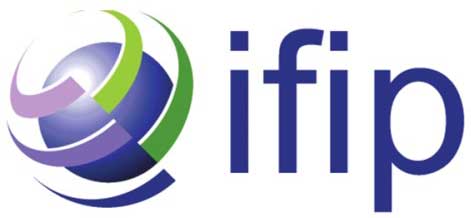
IFIP SIG 9.2.2
Special Interest Group on Framework on Ethics of Computing
Important announcement
IFIP has created a code of ethics, now the SIG concentrates on specific case-examples and hopes to help any national society which is interested in adopting IFIP code as their own.
- This far Finnish information processing organisation TIVIA has published their version.
About the group
SIG9.2.2 has its existence in a Task Group which was set up by the IFIP General Assembly in Toledo, Spain (September 1992) after IFIP’s 12th World Computer Congress where debates took place about having a single IFIP Code of Ethics.
The IFIP Ethics task Group ended its work by publishing the results of an in-depth analysis of nearly 30 codes of ethics/conduct, twenty-one of which pertain to IFIP national societies, representing twelve countries. This study has been published by Chapman & Hall, and is now being reprinted. Ethics of Computing: Codes, Spaces for Discussion and Law, Jacques BERLEUR & Klaus BRUNNSTEIN, Eds., A Handbook prepared by the IFIP Ethics Task Group, London: Chapman & Hall, 1996, 336 p., ISBN 0-412-72620-3.
This handbook contains specific recommendations adopted by the IFIP General Assembly of Hamburg (1994), after IFIP’s 13th World Computer Congress where the first results were presented. The IFIP-GA recommendations may be considered as the framework for future work of SIG9.2.2 which was set up subsequent to the Hamburg GA decision.
IFIP does not intend to provide IFIP national societies with precise guidelines for codes, but to advise them to consider its recommendations when writing or updating their own codes. IFIP cannot actually state what ‘ethics’ the national societies should espouse. It can, however, outline that there are certain principles that all might want to consider and take account of in their codes.
In its handbook, IFIP provides all the material needed for its member societies to consider. This includes some 30 computer societies’ codes, their analysis, comments on the most important codes, the philosophical background of cultural diversity, and papers on some more sensitive questions.
In accordance with the diversity of histories, cultures, social and political backgrounds of IFIP member societies, IFIP regards it as essential that, when wanted or needed, codes of ethics or of conduct (or guidelines) should always be developed and adopted within the member societies themselves. IFIP offers its expertise in assisting such developments, collecting and disseminating material about established codes, and organizing international debates on further developments.
Creating Spaces For Discussion
One of the main tasks for IFIP will be to create spaces for discussions, as suggested in the part of the Handbook devoted to the analysis of the codes. This could be done through actions such as:
- submitting, through the IFIP Newsletter for instance, specific case studies, encouraging members to submit their own responses;
- making available all the up-to-date codes of IFIP national societies, with related pointers to existing documentation for further research;
- publishing, as foreseen in the European Directive, “the codes which have been the subject of a favourable opinion …”;
- providing some Forum – under the Chairmanship of the IFIP President – where discussion could be raised about harmonizing codes of societies, in order to prevent restrictions in one country being prejudicial to another;
- participating in international fora where similar questions are treated; and
- assisting in the resolution of conflicts which could arise between national codes that are completely different;
Through its SIG9.2.2, IFIP will collect, compare and disseminate knowledge on developments in the national societies. In the case of controversies, it will also advise on the resolution of problems in projects with professionals from countries which have very different codes.
SIG9.2.2 is the space for discussion on ethical issues of computing which IFIP General Assembly has desired in Hamburg (1994). Its mandate was defined as follows:
“In endorsing the Task Group’s proposal and recommendations, TA explicitly agrees with the proposal that the implementation of an ongoing discussion process both in IFIP Member Societies and in the international discourse is essential to understand and further develop the ‘IFIP Framework on Ethics’ in more detail which is also a prerequisite to adapt it to new developments. Therefore, TA agrees that publication of the material, analysis and recommen-dations is essential to start these processes.
TA welcomes and accepts TC9’s suggestion to continue the Task Group under its umbrella. In dissolving the TA Task Group, TA asks the new TC9 Special Interest Group (SIG9.2.2 ‘IFIP Framework on Ethics’) to develop a set of case studies which may enlighten essential problems and issues related to ethics. Moreover, SIG9.2.2 will inform TA (within TC9 reports) about essential achievements and progress in the international discussion, and to discuss and suggest solutions for emerging problems.”
3 specific “Monographs” are available on this website:
- Ethics and the Governance of the Internet
- Criteria and Procedures for Developing Codes of Ethics or of Conduct
- Ethics of Computing Committees: Suggestions for Functions, Form and Structure
Members
http:/
[pdf-embedder url="https:/
[pdf-embedder url="https:/











